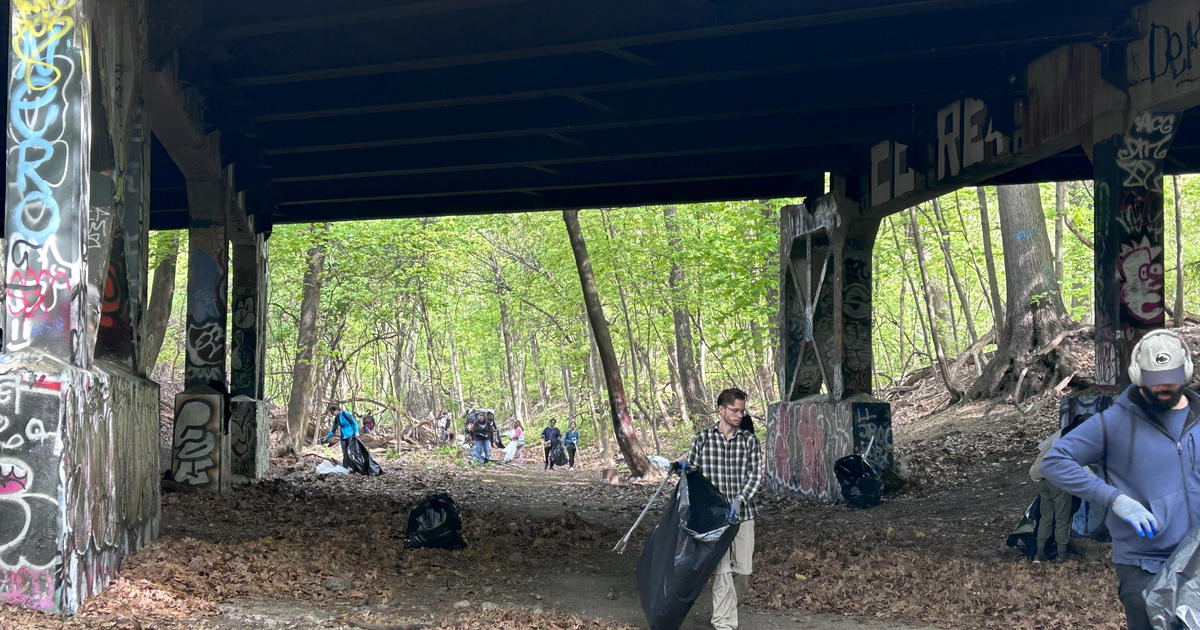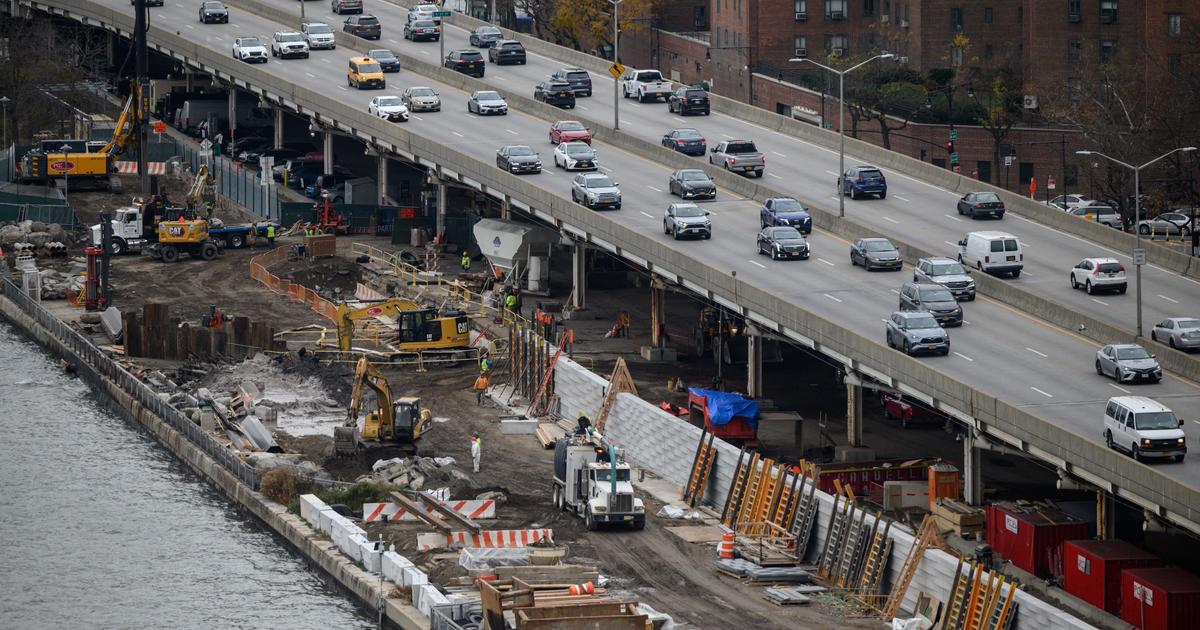Harvey Causes Gas Prices To Spike Nationwide
NEW YORK (CBSNewYork/AP) -- Drivers traveling this Labor Day weekend will be paying more at the pump after gas prices rose several cents overnight in the aftermath of Harvey's strike on the Gulf Coast.
The American Automobile Association said early Friday that the national average for a gallon of regular gas rose in one day from $2.45 Thursday to $2.51 Friday, which they say is 16 cents higher than a week ago and the highest price for the year.
In New York City, AAA says the average price is also the highest for the year at $2.73, up 13 cents from a week ago. On Long Island, prices jumped by eight cents overnight to an average price of $2.56, 14 cents more than last week.
In New Jersey, averages went up by nine cents to averages of $2.54, up nine cents from Thursday and 18 cents from last week. Connecticut's average prices rose seven cents overnight to $2.60, up 14 cents from last week.
"It's been a couple of dollars spent where I would have liked to spend them somewhere else," said Lower East Side driver Jason Hardaway.
Harvey made landfall in South Texas last Friday, leading to coastal flooding and swamping of much of Houston. Parts of Beaumont and Port Arthur also flooded as Harvey lost strength and moved into Louisiana.
Gas prices in Texas and across the country spiked by at least a dime following Harvey. The issue is due to major flooding at the country's largest and second largest oil refineries in Texas, which are bogged down by water and not operational.
The storm has affected 12 refineries along the Gulf Coast, a region essential to keeping the country moving, says the former president of Shell Oil John Hofmeister.
"Without it, we'd be in gas lines all the time," he said. "We need that Gulf Coast."
And that's what we're seeing in Dallas -- stretching gas lines and stations without fuel. In Louisiana, customers are shelling out an extra quarter per gallon.
"Yesterday gas was $2.01 and in the span of 24 hours, it's $2.25," said driver Kerry Senegal.
At the 16th Street DP in Hoboken, drivers were experiencing a drastic overnight increase, and while many still hit the road in search of one last weekend of summer fun, there were cooler than average temperature readings in town on Friday.
"I feel like summer has been over for a couple of weeks now, because the temperature has dropped considerably," Mark Dinger said.
Veronica Glennon was off, and would not be deterred. She was celebrating September 1, with a seasonal spiced latte in hand, ready to hit Spring Lake.
"I'm on my way down the shore, and I have to purchase my pumpkin spice latte," she said.
It could take two weeks or longer before big refineries in the Houston area can recover from the record-setting deluge and resume normal operations. That assumes they didn't suffer serious damage, which is still unknown.
Even once the refineries are running, pipelines and ports are needed to carry their gasoline, diesel and other fuels to consumers.
At least two major pipelines, one that ships gasoline across the southern United States and to the New York area and another that flows north to Chicago, have been slowed or stopped because of flooding and damage.
The Colonial Pipeline supplies 40 percent the south's gas supply and fuel to our area. It will be shut down until Sunday at the earliest, which could mean gas shortages in our area as well.
"Best case, the refineries should be up and operating again for the most part by the middle of September," said Hofmeister. "Worst case, some of those refineries, if they're really seriously damaged, they could be down through Thanksgiving or longer."
Exxon, Shell and other companies have reported to Texas regulators that some of their storage tanks and other facilities near Houston were damaged by the torrential rains and flooding. Most of the reports seem to indicate relatively minor damage, but still it could be days before crews can assess matters and make repairs.
One million barrels of oil will be released from a government stockpile, but that's only enough to supply the East Coast for about eight hours. The reserve will go to Texas and the states in most need.
(© Copyright 2017 CBS Broadcasting Inc. All Rights Reserved. The Associated Press contributed to this report.)



